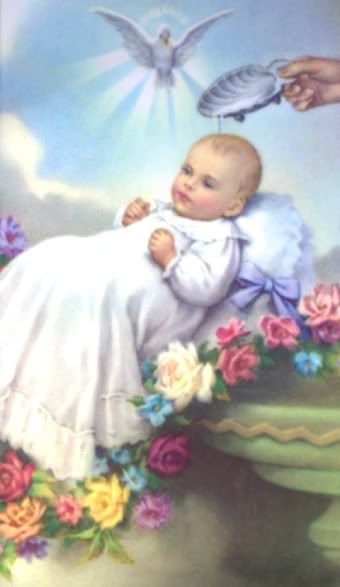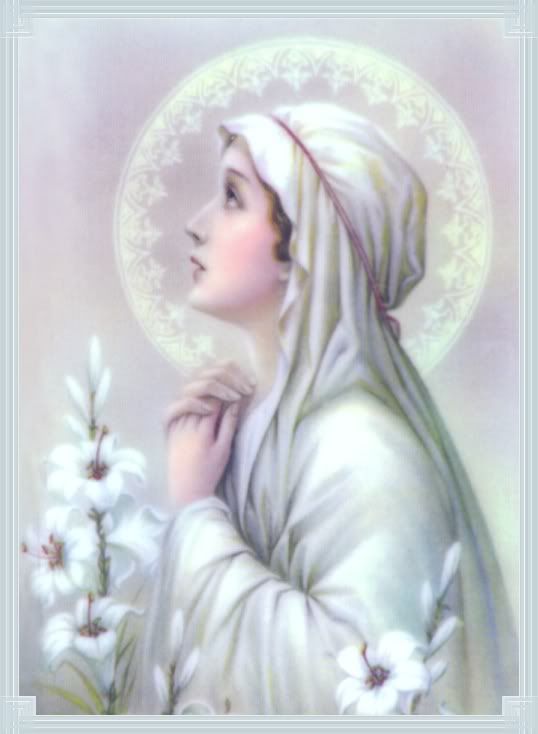Thy birth, O Virgin Mother of God,
heralded joy to all the world.
For from thou hast risen the Sun of justice,
Christ our God.
Destroying the curse, He gave blessing;
and damning death, He bestowed on us
life everlasting.
Blessed art thou among women
and blessed is the fruit of thy womb.
For from thou hast risen of Sun of justice,
Christ our God.(from The Divine Office - Matins (Morning Prayer)
 The Feast of the Nativity of Our Most Holy Lady, the Theotokos and Ever-Virgin Mary is celebrated on September 8 each year. The Feast commemorates the birth of the Mother of Jesus Christ, our Lord.
The Feast of the Nativity of Our Most Holy Lady, the Theotokos and Ever-Virgin Mary is celebrated on September 8 each year. The Feast commemorates the birth of the Mother of Jesus Christ, our Lord.
The birth and early life of the Virgin Mary is not recorded in the Gospels or other books of the New Testament, however this information can be found in a work dating from the second century known as the Book of James or Protevangelion.
According to the story found in this book, Mary's parents, Joachim and Anna, were childless for many years. They remained faithful to God, but their prayers for a child were unanswered. One day, when Joachim came to the temple to make an offering, he was turned away by the High Priest who chastised him for his lack of children. To hide his shame, Joachim retreated to the hill country to live among the shepherds and their flocks.
As Joachim was praying, his wife Anna was praying at the same time at their house in Jerusalem. An angel appeared to both of them and announced that Anna would have a child whose name would be known throughout the world. Anna promised to offer her child as a gift to the Lord. Joachim returned home, and in due time Anna bore a daughter, Mary.
Let us pray :
Lord God,
the day of our salvation dawned
when the Blessed Virgin gave birth to your Son.
As we celebrate her nativity
grant us your grace and your peace.
Through Christ our Lord, Amen.
For all who want to get close to the truth of Immaculate Conception of Mary , Holy Mother of God , I suggest to read
The Gospel of the Birth of Mary
 O Blessed Rosary of Mary, sweet chain which unites us to God, bond of love which unites us to the angels, tower of salvation against the assaults of Hell, safe port in our universal shipwreck, we will never abandon you. You will be our comfort in the hour of death: yours our final kiss as life ebbs away. And the last word from our lips will be your sweet name, O Queen of the Rosary, O dearest Mother, O refuge of Sinners, O Sovereign Consoler of the Afflicted. May you be everywhere blessed, today and always, on earth and in heaven. Mary, Mother of the Church/ Model of All Christians, Pray for Us.
O Blessed Rosary of Mary, sweet chain which unites us to God, bond of love which unites us to the angels, tower of salvation against the assaults of Hell, safe port in our universal shipwreck, we will never abandon you. You will be our comfort in the hour of death: yours our final kiss as life ebbs away. And the last word from our lips will be your sweet name, O Queen of the Rosary, O dearest Mother, O refuge of Sinners, O Sovereign Consoler of the Afflicted. May you be everywhere blessed, today and always, on earth and in heaven. Mary, Mother of the Church/ Model of All Christians, Pray for Us. 









